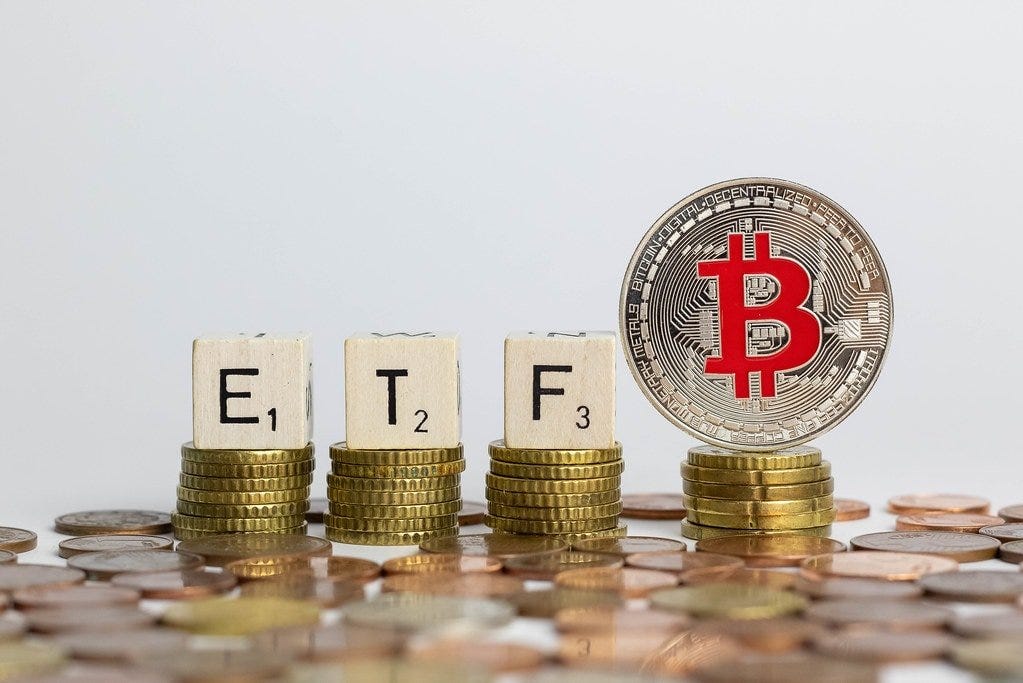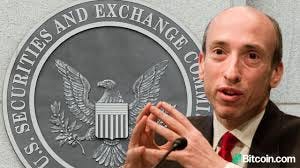Canada 3, United States 0
That’s not a hockey score.
Financial regulators in Canada have approved three exchange traded funds (ETFs) that invest solely in Bitcoin. It’s no surprise. Canada also approved the first ETF of any kind, the Toronto 35 Index Fund, which launched on the Toronto Stock Exchange on March 9, 1990. That was three years ahead of the debut of the first American ETF, the SPDR S&P 500 Fund. The US Securities and Exchange Commission is still reviewing approximately a dozen Bitcoin ETF applications.
ETFs have been an extraordinarily popular vehicle in the investment community, for three main reasons: First, they are a low-fee option for investors. Second, they often present a more tax-efficient option than do mutual funds. Finally, they can be easily purchased by all sorts of accounts, including qualified retirement plans and IRAs. Today, there are thousands of ETFs around the world, holding trillions of dollars worth of assets.
Following are the three Bitcoin ETFs approved so far in 2021 by Canadian officials:
Purpose Bitcoin Fund (BTCC). Launched on February 18 of this year, Purpose’s entry trades on the Toronto exchange and charges a pretty high management fee of 1.0%. Regardless, it was the fastest growing ETF in history, reaching $1 B in assets in just a month.
Evolve Bitcoin ETF (EBIT). Evolve debuted one day after Purpose, and though a much smaller fund at this point, charges a lower fee of .75%.
CI Galaxy Bitcoin ETF (BTCX). Galaxy cut ETF fees even further, charging just .40%. All three ETFs offer 100% cold storage of your Bitcoin assets, keeping then safe from online hacking.
So, Where Does the US Stand?
Currently, there are a dozen applications on file with the SEC to open Bitcoin ETFs. The first attempt was by Cameron and Tyler Winklevoss, the Gemini Exchange founders, in 2017. It was rejected that same year, and again for a second time in 2018. The SEC sighted the perceived “lack of regulation” in the cryptocurrency markets as the reason for turning down the “Bitcoin Billionaires.” The SEC noted that 95% of the volume in Bitcoin transactions at the time was occurring outside the United States, and thus perceived to be more difficult to regulate.
Following the Winklevoss twins came VanEck, Wilshire Phoenix, Fidelity, Wisdom Tree, and First Trust SkyBridge, led by Anthony Scaramucci. Just this week, Cathie Wood of the Ark Invest hedge funds group filed the most recent application with the SEC. Currently, the Ark funds have large holdings in Coinbase stock and the Grayscale Bitcoin Trust, so they’re totally on board with crypto.
The SEC, with its new chairman Gary Gensler, threw some shade on the party when, on April 28, it pushed out its ruling on the VanEck application until at least late June. Bitcoin proponents had previously been bullish on the Gensler appointment, given that he had taught blockchain technology classes at M.I.T.
Why the US SEC is being so cautious:
Gensler: “There are many challenges and gaps for investor protection in crypto markets.” He was speaking of lack of regulation, and the possible manipulations of crypto markets.
SEC: It is believed that the Commission wants to pull cryptocurrencies more tightly under its regulatory authority before it approves any Bitcoin ETF.
Bitcoin’s Volatility: Price fluctuations in crypto have regulators worried that investors, especially inexperienced ones, will fall victim to wild price swings. Additionally, when crypto prices can be instantly manipulated with one Tweet (think the “Elon Musk Effect”) regulators have some reason to worry. (This author’s note - this happens with stocks, too.)
“Market Maturity” - Congress and the SEC would like to see the crypto markets become more established, more settled, less volatile, before approving more ways to invest.
Why the US needs to approve Bitcoin ETFs:
“Those who oppose a Bitcoin ETF are effectively forcing investors into inferior fund structures and less regulated venues.” - Jan VanEck
US investors are forced to buy Bitcoin ETF products in Canada and Germany, where US regulators can do nothing to protect them.
Retirement plans in the US currently cannot invest directly in Bitcoin, so an exchange traded fund would give all investors the option of getting crypto on the regulated US stock exchanges.
An ETF holding Bitcoin would be better equipped to maintain the fund price close to the net value of the assets it holds, as opposed to a Bitcoin trust. The largest, the Grayscale Bitcoin Trust, is constantly swinging between trading at a pretty extreme premium or discount to its NAV.
Outlook: Morningstar’s Ben Johnson feels that the possibility of a Bitcoin ETF approval in 2021 “are very low,” saying Gensler has bigger fish to fry this year. However, Bloomberg’s Eric Balchunas feels that with large banks and corporations getting heavily involved in Bitcoin, and with Canada ahead of the US, at least one ETF will be approved in 2021, giving investors easier and safer options to invest in Bitcoin. I agree with Eric.
Note - Germany and some other European nations have also approved Bitcoin ETFs. US investors can take some solace however, in that across the pond, the UK has not given approval for such a fund yet either.
Tweet of the week, referring to El Salvador’s adoption of Bitcoin as legal tender:


Evergreen Tweet:

This Month in Bitcoin History:
In July 2014 tech companies Newegg and Dell started accepting bitcoin for purchases. These were two of the first major retailers to do so.
In July 2016, researchers published a paper showing that by November 2013 bitcoin commerce was no longer driven mainly by "sin" activities but instead by legitimate enterprises. (Many government officials don’t yet understand this.)
Issue No. 10 July 2, 2021
Rick Mulvey is a CPA, forensic accountant and crypto consultant. He writes about all things Bitcoin, runs marathons, yells at the Yankees and Giants, and is getting better at making homemade wine.
Follow on Twitter! The Bitcoin Files Newsletter







